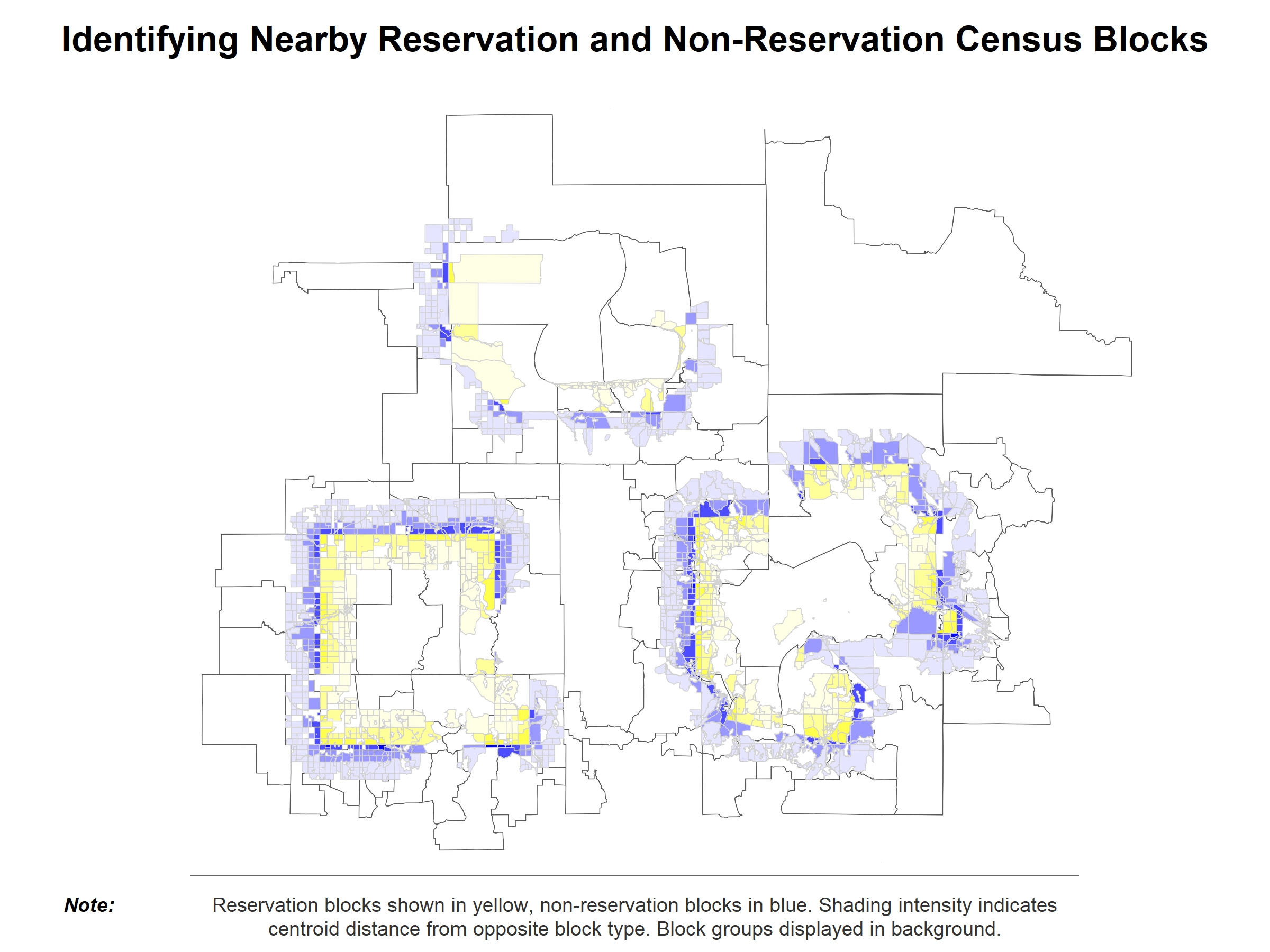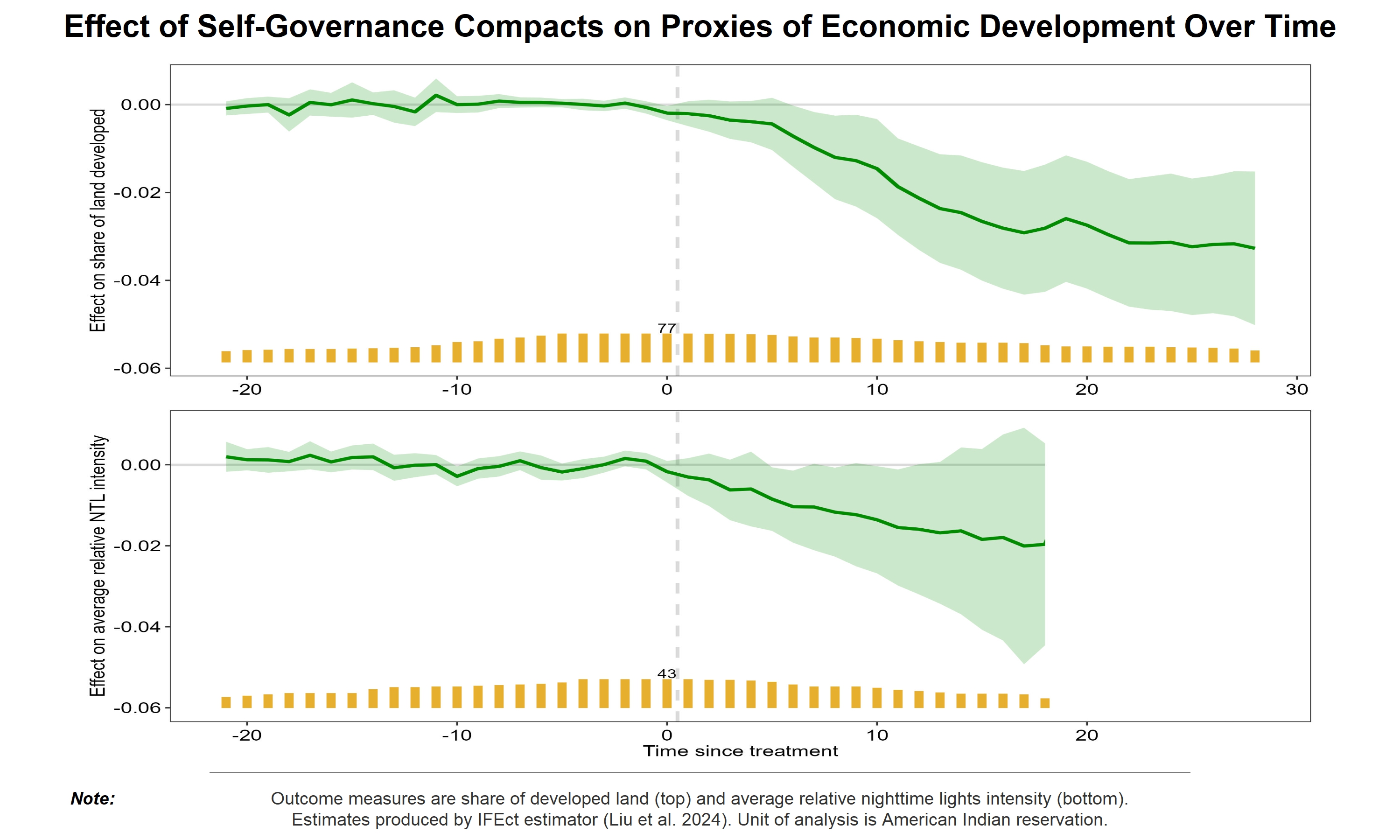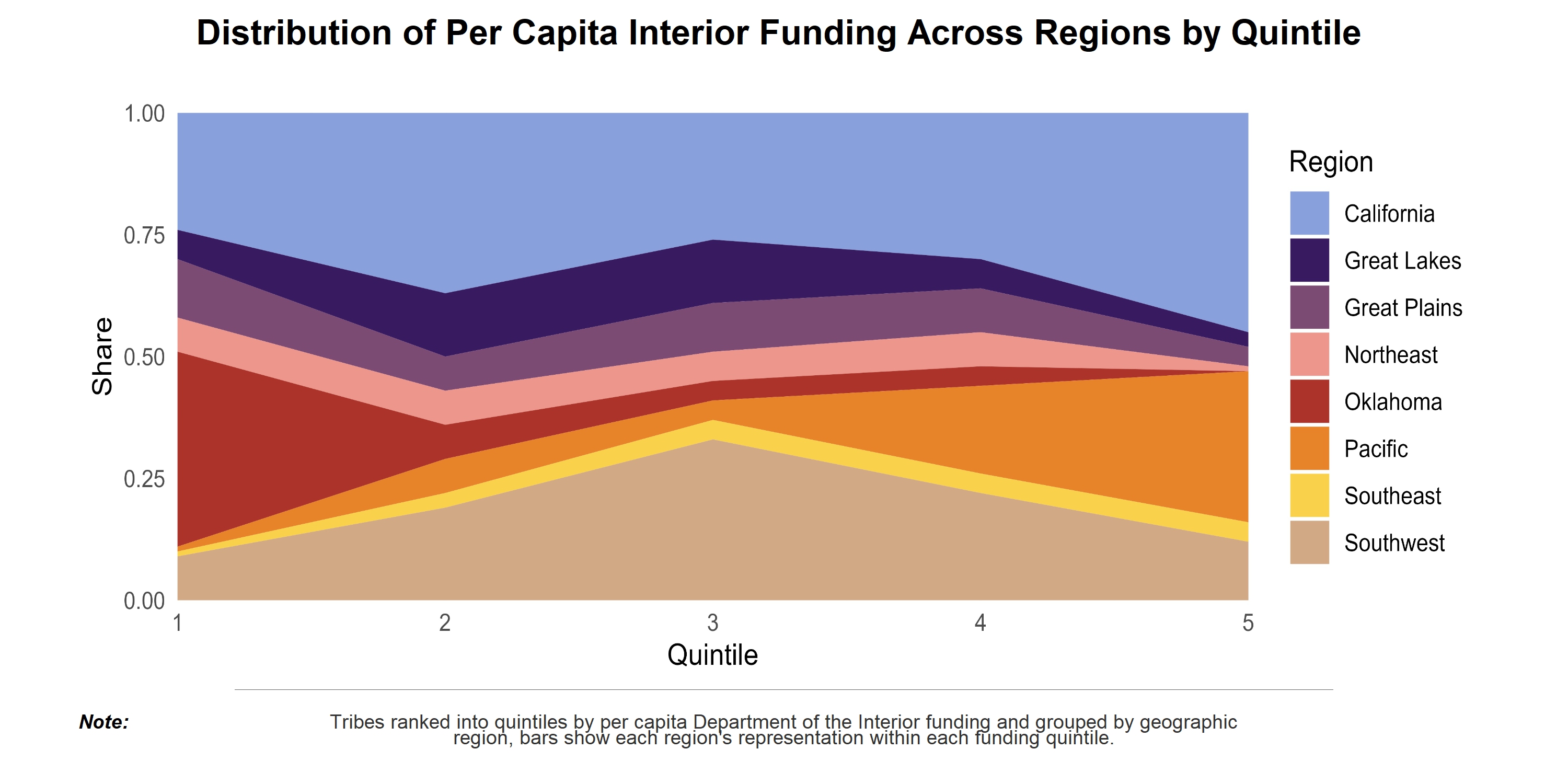Papers
Published Work
Exploring the Influence of Tribal Governance Capacity: Evidence from Internet Availability in Indian Country
Abstract
The lack of internet access on American Indian lands is a frequently discussed component of greater socioeconomic inequalities faced by American indigenous communities. In this paper, I attempt to identify the barriers to internet infrastructure deployment that are unique to Indian Country. Using data on internet availability at the census block level from 2014 to 2019, I apply a spatial matching strategy to identify similar native and non-native census blocks to estimate the effect of tribal land designation on cable internet availability. Finding a significant, negative effect for land in Indian Country, I then examine four possible determinants of tribal government capacity (gaming business, federal funding, participation in self-governance compacts, and a reservation economic freedom index) to explore how it may reduce the gap in internet availability. I find that only one of these four measures, compacting, is correlated with improved internet access in Indian Country.

NIMBYs, YIMBYs, and the Politics of Land Use in American Cities
Abstract
Debates over the development and density of housing have gained visibility in recent years as housing costs have skyrocketed in many metropolitan areas. With those who seek to limit development (NIMBYs) on one side and those who seek to promote it (YIMBYs) on the other, scholarly attention has turned to understanding preferences and power in the politics of development.This article reviews scholarship relating to the politics of land use. After discussing the history of land use regulation, we describe who the important actors are (and, generally, what they want) in the politics of land use; we explain the distribution of power and inequality in the politics of land use; and we briefly review how land use regulation affects other societal outcomes. We end with a set of unanswered political questions that could push the field forward.
Working Papers
JMP “Power to Prosper: Self-Governance and Economic Development” Download
Abstract
American politics has always stood out, and is often celebrated, for the large role local governments play. Yet the study of local politics is replete with examples of local power gone wrong, where government bodies are too weak or too captured to act for the better good of the community. This paper asks whether the distributed nature of power in the U.S. is an economic boon or burden. To answer this question, I look at one of the most significant expansions of local power in the modern U.S.: American Indian tribal governments. Constructing the largest public dataset on reservation economies, combining nearly forty years of annual remote sensing data to estimate economic development on over 300 reservations, I analyze how the expansion of tribal self-governance power impacted reservation economies. I find that tribal self-governance reduced economicdevelopmentonaverage, although the effect fades overtime. Using different measures of tribal governance capacity and political institutions, I find tentative evidence for a governance capacity mechanism.

“Tools To Persuade: Exploring Tribal Engagement and the Politics of Federal Support” with Tessa Provins Download
Abstract
Private-sector firms and subnational governments frequently engage in lobbying, consultation, and strategic advocacy to secure favorable funding and regulatory outcomes but it remains unclear whether and how federally recognized tribal governments employ similar tactics to influence their financial relationship with the U.S. federal government. In this paper, we examine how and why tribes engage with federal institutions and whether that engagement affects funding outcomes. We develop a theoretical framework that explains variation in tribal engagement as a function of economic need, administrative capacity, and institutional expertise. We collect original data on Tribal Interior Budget Council (TIBC) participation and lobbying disclosures from 2013–2021 to assess the drivers of tribal engagement and their consequences for federal funding. Using Department of the Interior funding data that includes over 93,000 transactions to tribal governments, we find that tribes participating directly in federal advisory processes receive significantly more federal funding overall, while indirect engagement through lobbying is positively associated with targeted increases in self-determination funding. These results provide evidence of the importance of political engagement in shaping funding outcomes. This study contributes to the broader literature on Indigenous governance, lobbying, and intergovernmental resource allocation.

Early Stage Projects
“Beyond the Reservation Line: The Electoral Consequences of American Indian Migration” with Alex Zhao
Abstract
The urbanization of American Indians has been a trend in native communities for the past 75 years, yet it's effects are rarely studied quantitatively. This project descriptively analyzes this migration, showing trends in American Indian migration over the past Century. Then it looks into how these American Indian migrants impact the electoral outcomes of small urban areas they move to.
“Tribal Legislator Behavior: Evidence from the Cherokee Nation” with Nate Monroe
Abstract
This project investigates legislative behavior in the Cherokee Nation Council, offering one of the first systematic analyses of voting patterns in a tribal government. Using comprehensive roll-call records from 1975 to the present, it explores three core questions: how councilors introduce and pass legislation, how ideological dimensions structure disagreement, and whether conflicts emerge around at-large representation and distributive spending. The study begins with descriptive analysis of bill sponsorship, passage rates, and vote margins, then applies the NOMINATE algorithm to assess the dimensionality of Cherokee politics. Finally, it tests hypotheses about the effects of at-large councilors—who represent citizens outside the Nation’s boundaries—and the politics of pork spending. By opening the “black box” of tribal legislatures, this project situates American Indian lawmaking within broader theories of representation, coalition-building, and institutional conflict, while also producing a replicable dataset for future research on Native governance.
